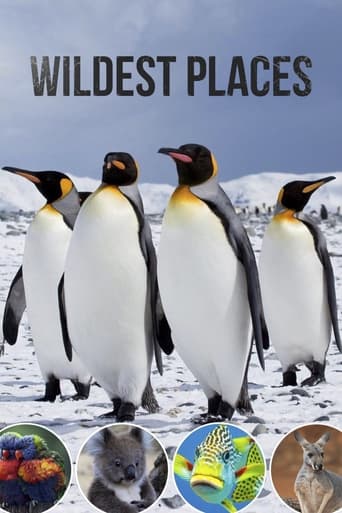
Wildest Places (2019)
Wildest Places is a 12-part television documentary series exploring some of the most incredible natural habitats on the planet and an extraordinarily diverse range of wildlife. With series titled Wildest Pacific, Wildest Antarctica and Wildest Australia, it includes amazing never-before-seen footage filmed over more than 10 years. Wildest Places is a visual feast that showcases astonishing aspects of animal life in an untamed world and features rarely captured animal behaviours in remote habitats.
-

Episode 1 - Currents
Release Date: 2019-01-29Antarctica is surrounded by the strongest ocean current on the planet, extending from the surface all the way to the sea floor. It's one of the many variables that keeps this continent isolated, as well as the coldest place on Earth. It creates pathways for polar inhabitants to travel to other shores and determines where marine life will migrate, mate, raise their young, and hunt.
-

Episode 2 - Seasons
Release Date: 2019-02-05The South Pole has just two seasons, summer and winter. The warmer months draw a myriad of wondrous animals to Antarctic waters. Winter transforms Antarctica into a vastly different place. The extreme weather forces animals to flee for warmer waters. The entire continent swells, and contracts. Blizzards set in, but on distant shores, the renewal of life, and the hunt, continues.
-

Episode 3 - Connected Continents
Release Date: 2019-02-12It's barely fathomable that all the land on Earth was once connected. Roughly 250 million years ago, the land masses we recognize as today's continents broke away from what is now the Antarctic and rode atop tectonic plates across the southern hemisphere. Clues to these ancient connections between the southern continents are hidden throughout the animal kingdom today.
-

Episode 4 - Icy Islands
Release Date: 2019-02-19The Antarctic continent contains 90% of all ice on the planet. Deep in the center, conditions are so extreme that few forms of life survive. Even on the coast, seals and penguins need to enter water to warm up, and flee when Antarctica is plunged into 24-hour darkness each winter. The sheer inhospitable nature of the continent means the icy islands that surround it play a vital role.
